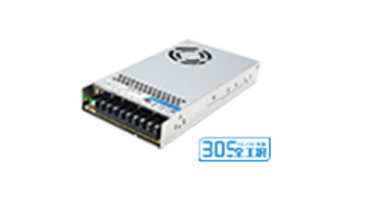Should I Sign Up for a Wireless Internet Connection?

While there are many different types of internet connections available nowadays, nothing can beat the convenience of a wireless internet connection. Even if you compare it with fiber, cable, or DSL internet, these connection types require a proper setup and installation, which can be frustrating for many users. On the flip side, most Wi-Fi networks are easily accessible without consuming hours to set it up or install the equipment. Therefore, a wireless internet connection is ideal for many users.
What Are the Benefits of Using a Wireless Internet Connection?
Here are some of the advantages of having a wireless internet connection:
Cost-Effective
Wireless internet is available at competitive prices in the US. Since it does not require additional wiring or equipment, this will help cut down the cost to get wireless internet. Similarly, HughesNet Internet offers high-speed internet at prices that are much lower than what you would pay for a fiber internet connection. This way, you will end up saving money and get seamless internet connectivity at the same time.
Expandable
Wireless connections can be expanded and shared with multiple users and devices without any hassle. All you need to do is, share your network password with other users, and voila! Your Wi-Fi network will be connected to other Wi-Fi-enabled devices as well.
Convenient
Unlike cable and fiber internet connections, wireless internet gives you the flexibility to stay at home or step out of your comfort zone, depending on your mood. However, your internet connection does not depend on that. You can go wherever you want while staying connected to stable internet.
It’s up to you whether you are looking for a free public Wi-Fi network or prefer using your mobile hotspot. Either way, you will continue to connect to the internet no matter where you are.
Secure
Using your smartphone as a mobile hotspot is a great way to stay connected and secure at the same time. As long as you are not using any public Wi-Fi network, you will remain safe from intruders and potential hackers that may try to access your data through your network.
Similarly, if you have a wireless internet connection at home, it can be protected from security risks and threats. For example, if you have guests coming over to your place regularly who may ask your Wi-Fi password, then you can build a separate network for visitors only. Create a guest network account for your current Wi-Fi network and share it with your guests. This way, you can ensure that no one poses a risk to your primary network account by downloading malicious content over the internet.
What Are the Risks Associated With Wireless Internet Connections?
Wireless internet offers various benefits to its users; however, it may impose a few limitations that you need to know before connecting to a wireless network:
Limited Range
From home Wi-Fi networks to mobile hotspots, all wireless internet connections cover limited distances within an area. Most Wi-Fi networks allow connection to devices that are placed about 100 ft to 150 ft away from the router. Therefore, they are ideal for smaller households with internet users sitting nearby when connected to the home network. The farther you go from the router, the weaker your internet signals will be. Even if you are sitting outdoor, your Wi-Fi network does not guarantee consistent signals to your devices.
Slower Speeds
Wi-Fi networks may deliver slow upload and download speeds, which can interfere with your online activities. This is because your Wi-Fi signals are susceptible to interruption by electromagnetic waves from other devices in the same area. As a result, your router transmits insufficient signals to your devices. On the other hand, when too many devices are connected to the same network at the same time, your router may fail to accommodate all devices simultaneously.
Besides, even if your router is positioned at the wrong angle or located in a closed space (like a shelf or a drawer), it can prevent signals from reaching all the nearby devices. Dial HughesNet phone number to learn how to place your router and adjust its antennas the right way.
The Bottom Line
A wireless internet connection is best for those who need to step outside for studying, work, or any other purpose. From expandability, convenience, and security to cost-effectiveness, it offers many advantages to its users. However, its slower speeds and limited coverage can become a barrier to transmitting the right speeds and strong signals to your device. So, before you sign up for a wireless internet plan, weigh its pros and cons to decide if it works for you or not.





